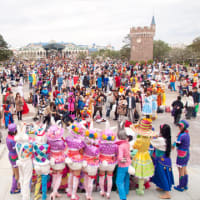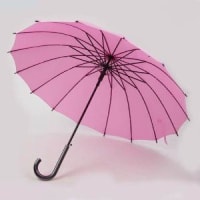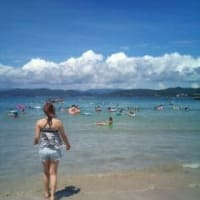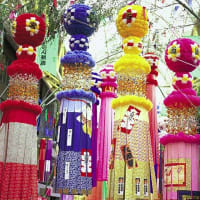If / When, and the present real conditional.
Hello everyone!
Today, as promised, we will start a long series about the many types of conditional sentences that exist in English. Naturally, we will start with the simplest forms first.
So, this time we will think about a form called the 'present real conditional'.
Most conditional forms are named with two words: one for the tense of the sentence (past, present, future), and one to say whether the situation we are talking about is something that REALLY often happens (or happened, or will probably happen), or something we IMAGINE might happen (or would have happened in the past, or might happen in the future).
That gives us 6 different conditionals:
Present real conditional
Present unreal conditional
Past real conditional
Past unreal conditional
Future real conditional
Future unreal conditional
We will learn about all of these in the next few months, but today we will start at the beginning.
The present real conditional is used to talk about real-life situations, that USUALLY happen EVERY TIME something else happens. Lets look at some examples:
If I go to a friend's house for dinner, I usually take a bottle of wine or some flowers.
When I have a day off from work, I often go to the beach.
If the weather is nice, she walks to work.
Jerry helps me with my homework when he has time.
I read if there is nothing on TV.
Notice that the form of this conditional always has two present simple verbs. Try to find them all in the examples above.
In every example, there is also an IF or a WHEN. It is very important WHERE in the sentence that appears. The verb that comes JUST AFTER the if/when is an event that SOMETIMES HAPPENS. The verb that is not connected to the if/when is the event that happens BECAUSE OF, or IN RESPONSE TO, or just RELIABLY COMES AFTER, the first event.
Here is how that happens in two of the above examples:
> When I have a day off from work, I often go to the beach.
In this example, the verb connected to WHEN is 'have', and so 'have a day off' is the event that sometimes happens. The verb which isn't connected to the 'WHEN' is 'go', so 'go to the beach' is the event that happens BECAUSE of the first event.
Therefore, this conditional means: Sometimes the weather is nice. On those days, I go to the beach. Notice that, because we are using the present simple, we are not talking about TODAY or TOMORROW. We are talking about REGULAR OCCURRENCES, HABITS OR HOBBIES.
> She walks to work if the weather is nice.
Here, the IF comes in the middle, not at the start. That means that the verb connected to the IF is the 'IS' in 'the weather IS nice'. So, 'the weather is nice' is the event that SOMETIMES HAPPENS, and the verb which isn't connected to the 'IS' is 'walks', so 'she walks to work' is what happens IN RESPONSE TO the weather.
So this second example has a very similar meaning to the first example, even though the IF/WHEN clause comes at the end instead of the start. It means: Sometimes the weather is nice. On those days, she walks to work.
One final note: In most conditionals, you can't change between WHEN and IF. There is usually only one correct word. In this present real conditional, we can use either word.
However, there is a slight difference in meaning. WHEN means the first event happens OFTEN. IF means the first event happens RARELY.
When I have a day off from work, I go to the beach.
> I often have a day off
If I have a day off from work, I go to the beach.
> I rarely have a day off
Thanks for reading! Next time we will look at present UNREAL conditionals.
-Tim
P.S. If you have any questions about any one-point lessons, leave a comment and I might answer it!
 下北沢英会話スクール ビートンボックス
下北沢英会話スクール ビートンボックス
Hello everyone!
Today, as promised, we will start a long series about the many types of conditional sentences that exist in English. Naturally, we will start with the simplest forms first.
So, this time we will think about a form called the 'present real conditional'.
Most conditional forms are named with two words: one for the tense of the sentence (past, present, future), and one to say whether the situation we are talking about is something that REALLY often happens (or happened, or will probably happen), or something we IMAGINE might happen (or would have happened in the past, or might happen in the future).
That gives us 6 different conditionals:
Present real conditional
Present unreal conditional
Past real conditional
Past unreal conditional
Future real conditional
Future unreal conditional
We will learn about all of these in the next few months, but today we will start at the beginning.
The present real conditional is used to talk about real-life situations, that USUALLY happen EVERY TIME something else happens. Lets look at some examples:
If I go to a friend's house for dinner, I usually take a bottle of wine or some flowers.
When I have a day off from work, I often go to the beach.
If the weather is nice, she walks to work.
Jerry helps me with my homework when he has time.
I read if there is nothing on TV.
Notice that the form of this conditional always has two present simple verbs. Try to find them all in the examples above.
In every example, there is also an IF or a WHEN. It is very important WHERE in the sentence that appears. The verb that comes JUST AFTER the if/when is an event that SOMETIMES HAPPENS. The verb that is not connected to the if/when is the event that happens BECAUSE OF, or IN RESPONSE TO, or just RELIABLY COMES AFTER, the first event.
Here is how that happens in two of the above examples:
> When I have a day off from work, I often go to the beach.
In this example, the verb connected to WHEN is 'have', and so 'have a day off' is the event that sometimes happens. The verb which isn't connected to the 'WHEN' is 'go', so 'go to the beach' is the event that happens BECAUSE of the first event.
Therefore, this conditional means: Sometimes the weather is nice. On those days, I go to the beach. Notice that, because we are using the present simple, we are not talking about TODAY or TOMORROW. We are talking about REGULAR OCCURRENCES, HABITS OR HOBBIES.
> She walks to work if the weather is nice.
Here, the IF comes in the middle, not at the start. That means that the verb connected to the IF is the 'IS' in 'the weather IS nice'. So, 'the weather is nice' is the event that SOMETIMES HAPPENS, and the verb which isn't connected to the 'IS' is 'walks', so 'she walks to work' is what happens IN RESPONSE TO the weather.
So this second example has a very similar meaning to the first example, even though the IF/WHEN clause comes at the end instead of the start. It means: Sometimes the weather is nice. On those days, she walks to work.
One final note: In most conditionals, you can't change between WHEN and IF. There is usually only one correct word. In this present real conditional, we can use either word.
However, there is a slight difference in meaning. WHEN means the first event happens OFTEN. IF means the first event happens RARELY.
When I have a day off from work, I go to the beach.
> I often have a day off
If I have a day off from work, I go to the beach.
> I rarely have a day off
Thanks for reading! Next time we will look at present UNREAL conditionals.
-Tim
P.S. If you have any questions about any one-point lessons, leave a comment and I might answer it!
 下北沢英会話スクール ビートンボックス
下北沢英会話スクール ビートンボックス




















※コメント投稿者のブログIDはブログ作成者のみに通知されます